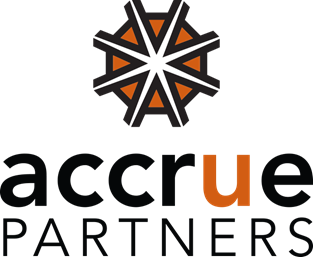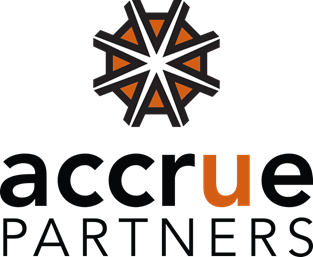
Making it to the interview stage after applying for a job is a worthy accomplishment. The average corporate job opening invites between 4 to 6 people for an interview. That’s after reviewing an average of 250 resumes, according to Zippia.
Job interviews are an opportunity for employers to:
- Go over the experience you’ve listed in your resume
- Ask questions about how you’d handle certain work situations
- Assess whether or not you’d be a cultural fit for the company
As a candidate, an interview also gives you time to see whether or not you’d want to work for the company. It’s your chance to interview the employer.
With resignation rates in the U.S. at an all-time high in August 2021 since the data was first collected in December 2000, committing only to a job you truly want can motivate you to stay there longer. That enables you to build a career with a company and saves you time from having to start the whole job search process over again if you leave.
To increase the likelihood you’ll be hired for a job you want, it’s essential to have a successful job interview. Use these tips to make a great impression in your job interview and boost your chance of getting hired.
1. Prepare, Prepare, Prepare
Companies want to know you’re enthusiastic about the role and their company. When employees are engaged at work, Gallup reports they’re more productive and produce higher-quality work. The interview is your first in-person chance to show you’ll be an engaged employee.
Take time to:
- Research the company website, learn about leadership and read the company’s mission statement
- Learn about the company through its social media channels, to get an idea of the company culture and personality
- Get to know the company’s products or services and how your expertise or passions relate
- Read the company’s blog and check out other marketing materials, like corporate videos
You want to give the impression that you want a job at the company for specific reasons – not that you just want any job. Mentioning tidbits of knowledge you’ve learned about the company in an interview confirms you’ve done your research.
Also, make sure you know the job description inside and out and are prepared to explain why you’re a fit for the role. Review your resume – which influenced the employer’s decision you’re worthy of the interview – so you can confidently talk about your experience and skills and how they relate to the job.
Another preparation step that may help is to practice a mock interview with a mentor or someone you trust. Public speaking is a common fear that can affect people in the interview seat. Practicing an interview can help you mitigate any jitters.
How do you prepare for virtual interviews?
If you’re doing your interview virtually through a video conferencing tool, there are some additional steps to take to prepare. You’ll still want to follow the advice above, but also be sure to:
- Download the meeting software ahead of the meeting. Make sure it’s updated to the latest version.
- Test the software before your interview so you ensure you can join the meeting on time and complete the interview successfully. You may want to practice using the software with someone else.
- Set up optimal lighting so the interviewer can see you clearly. Place your equipment by natural light if possible. Or, turn on the lights or illuminate your face using a lamp or ring light if your interview’s at night. Some programs, like Zoom, also have a “touch up my appearance” feature you can turn on for the interview.
- Clear clutter. Remove anything in the background, like posters, that might be distracting or in poor taste. Simpler is better for a virtual job interview environment.
- Test your sound and video capabilities. Block out your interview time with anyone you live with – family, roommates – so there’s no one running in the background of your interview or making noise during it.
Just like you would for an in-person interview, dress the part (including what you wear on the bottom of your attire) and brush your hair so you appear professional. When you’re providing answers, looking directly into the camera gives the impression you’re making eye contact.
If you’re new to virtual interviews, a practice run can boost your confidence and make you feel more prepared, which could be a difference-maker during the interview.
2. Arrive with What You Need
Depending on the job, you may be asked to present supplemental materials in the interview, such as a work portfolio or a sample presentation. Double-check before your interview that you have any required materials with you. If you have paper materials, put them in a sturdy portfolio so they don’t bend. If you’re bringing a laptop, remember your charger.
You may want to bring a few extra copies of your resume in case there are additional interviewers you’re meeting with who don’t have them. That also shows initiative that you’re prepared for the interview.
It’s helpful to have a notebook or pad of paper and pen with you during the interview, as well. You can jot down notes, thoughts and questions during the interview.
You can also write out questions you’d like to ask the employer ahead of time and reference them in the interview. These might include:
- How would you describe your company culture?
- What do you enjoy about working here?
- What are some examples of projects I’d be working on?
- What learning and development opportunities are available?
- How is performance measured?
You can also ask questions about the company, the team and next steps. Aim to ask at least a couple questions, to show the employer you’re engaged.
Dress for the job you want. Typically, even for entry-level jobs, it’s best practice to dress in business casual or formal attire to convey that you take the job interview seriously. Ask the HR coordinator at the company for attire tips if you need help.
3. End on a Good Note
It’s probably likely that there are other people being interviewed for the job you want. To stand out among the other candidates, you can try to stay at top of mind with these tips.
- Send a follow-up note of thanks. Thank the people you interviewed with for their time. In your note, reiterate that you’d be grateful for the opportunity to work for their company. You might reference something you discussed during the interview to reinforce your connection.
- Connect with the company on LinkedIn. You might also add the people you interviewed with as connections on LinkedIn. Even if you don’t get this job, they know your experience and might be able to refer you for another opportunity or contact you when something new arises. You might also follow the company on LinkedIn and interact with some posts there.
- Follow directions. Adhere to any timeline you’ve been provided in the interview about next steps. If you were told you’d hear back at a certain time and the time passes, it’s appropriate to follow up with the right person to check in. Your time is valuable, so it helps to know if you’re still in the running or if you should move on.
In all your interactions with the company and employees beyond the interview, be respectful, even if you’re not chosen as the candidate. You never know all the people the interviewers are connected to, and you don’t want to damage any potential professional relationships.
If you don’t get the job, look at the positive side of being able to practice your interview skills. You’ve been able to learn more about a company and its culture, work and benefits. You can use that information to hone in on what you want from a job and apply that in your job search for the next position. In December 2021, there were a near-record number of job openings in the U.S., so something better may be on the horizon.
Looking for a Job? Check Out AccruePartners
Accrue Partners is hiring now for positions in a variety of industries, including accounting, finance, information technology, creative, digital marketing, human resources and corporate support. View our job listings for opportunities. Connect with the AccruePartners talent acquisition firm if you’d like to be considered for open jobs that match your skill set.





